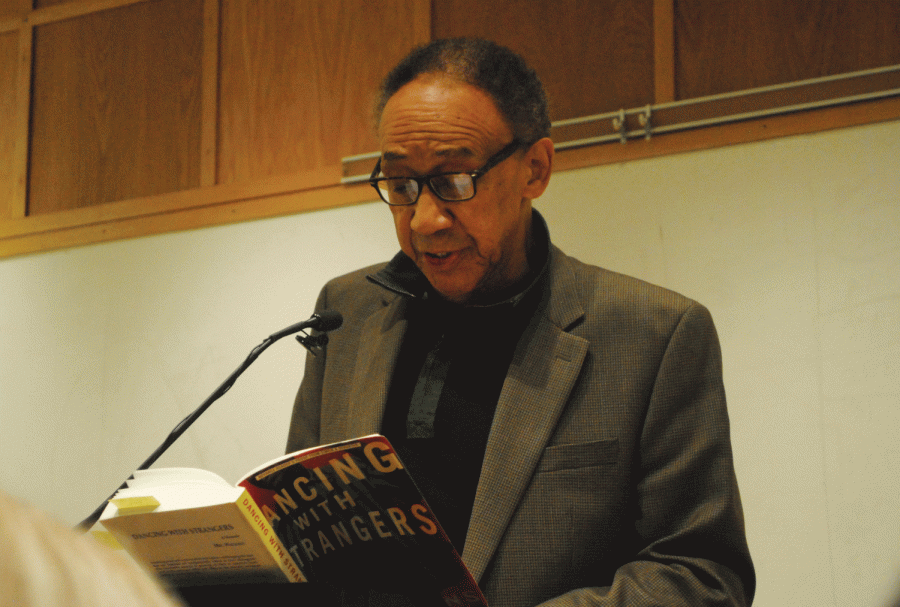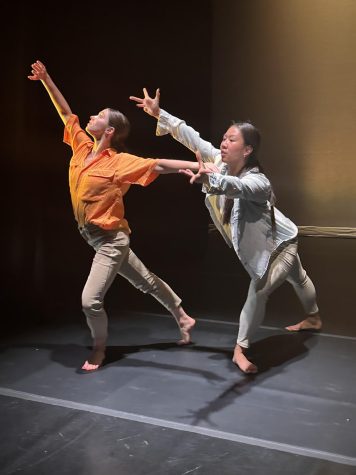Living Writers Series
Novelist, occasional essayist and poet Ha Jin ushered in the 2012 Living Writers series with a book reading and Question & Answer session in Persson Hall Auditorium on Thursday. Jin is the first of nine writers who will participate in this year’s series, which is oriented around in-ternational writers. Jin is a Chinese-American novelist who immigrated to the United States in 1985, where he has lived ever since.
Thomas A. Bartlett Chair and Professor of English Jane Pinchin introduced Jin, saying, “He has won acclaim the world over.”
Jin has won the National Book Award and two PEN/Faulkner awards. The novel that he read from Thursday, “Waiting,” won him one of each of those awards. Jin has also won three Pushcart Prizes for fiction.
“Waiting” had particular significance for Jin and the Living Writers series because this novel made Jin’s reputation as a novelist and it is also the novel that Jin read last time he was at Colgate for the University’s first Living Writers series in 1999, organized by the late novelist and Colgate professor Frederick Busch.
Jin said at the reading that he had not read “Waiting” for 10 years. Coming back to the novel now, he was struck by his own work, even as he shared it with others.
“I notice now my affection for landscape and people in this novel,” Jin said. “There are small details of the countryside that I wanted to preserve because I felt that they might not be there 20 years after I wrote the book.”
The novel is set in Manchuria and China, and Jin made the stylistic choice to write the novel in English. Much of the discussion at the reading and in the Q&A focused on this crucial aspect of the novel.
Professor Pinchin quoted Jin in the past as saying that changing languages from his native Chinese to English was “like you are changing your blood.”
Jin himself elaborated on the arduous process.
“Writing in English filled me with anxiety and doubt,” Jin said. “But I realized that since anxiety and doubt are in the human condition, I could accept them as a working condition.”
Most of the event was comprised of Jin reading from his novel. He focused on two scenes that he himself had never read together before. First, he read the prologue to his book that sets up the story of a man who returns from where he works in a Chinese city to his native Manchuria every year for 18 years where he attempts to convince his wife in Manchu-ria to divorce him so he could marry his new girlfriend in the city. The prologue recounts the arduous and futile ceremony that occurs in the courtroom every year as the wife refused to give her consent before the judge. In doing so, this prologue sets up the entire painful game of waiting that encompasses the action of the novel. Jin then compared this, for the first time in such a session, with a later scene when the law finally compels the wife to accept the divorce and the relative ease with which the courtroom proceedings are finally completed.
It is a Chinese story, but one that Jin felt resonated in the lives of people across the world. He related that he had heard of people like the frustrated, passive pro-tagonist existing even in America. When he was asked, however, about the success of the daring enterprise of his English lan-guage novel, he responded that he thought it might have been better if it had been written in Chinese.
Quoting the playwright Samuel Beckett, the ever-humble Jin said, “For a writer, there is only failure.”
Contact Thomas Wiley at [email protected].










